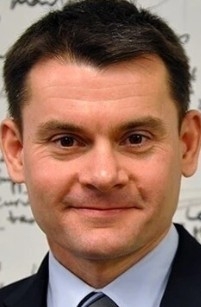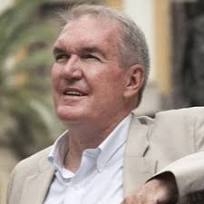 Fall - Winter 25-26
Fall - Winter 25-26
Mar 2026
Wed, 25 @ 12:30. Webinar / Onsite Micro Seminar 
Wed, 18 @ 12:30. Webinar / Onsite Micro Seminar 
Wed, 04 @ 12:30. Webinar / Onsite Macro Seminar 
Feb 2026
Wed, 25 @ 12:30. Webinar / Onsite Macro Seminar 
- Speaker: C. Campanale (U. of Turin)
- Title: Heterogeneous beliefs, preference for safety, and life-cycle portfolio allocation.
- Invited by: L. Puch (ICAE-UCM)
- Abstract: In the present research I examine the implications of heterogeneous beliefs about the expected equity premium in a life-cycle portfolio choice model with background income risk. While subjective and dispersed expectations have become a popular mechanism to explain asset pricing phenomena, introducing belief heterogeneity in a standard framework generates an additional puzzle: the sensitivity of risky asset holdings to expected returns is far greater than observed in the data. Incorporating a direct utility component over the safe asset mitigates this excess sensitivity, producing asset allocation responses that are consistent with empirical evidence. The extended model also replicates realistic patterns of stock market participation and conditional risky shares across wealth and age profiles.
|
 |
Tue, 24 @ 12:30. Webinar / Onsite Econometrics - Finance Seminar 
- Speaker: I. Figuerola Ferreti (UP. Comillas)
- Title: Energy Market Bubbles under the Green Transition
- Invited by: Teo Pérez Amaral (ICAE-UCM)
- Abstract: Russia’s weaponization of gas supplies has heightened concerns over the energy trilemma—security, affordability, and sustainability—emphasizing the need to reduce dependence on volatile fossil fuel markets. This paper investigates speculative price dynamics in energy markets during the recent energy crisis, focusing on gas, electricity, low-carbon hydrogen, and renewable Power Purchase Agreements (PPAs). We apply the Phillips, Shi, and Yu (2015) mild explosivity (PSY) test to daily and weekly benchmark price series to detect and date-stamp bubble episodes. Our analysis identifies two significant periods of widespread exuberance: one beginning in mid-2021 and another peaking in August 2022, coinciding with the Nord Stream I pipeline shutdown. These results provide empirical evidence of boom-and-bust cycles driven by both geopolitical supply shocks and market speculation. The findings stress the structural fragility of fossil-based energy systems and reinforce the urgency of accelerating the transition toward more stable, low-carbon energy alternatives.
|
 |
Jan 2026
Wed, 28 @ 12:30. Webinar / Onsite Econometrics - Finance Seminar  This seminar has been postponed.
This seminar has been postponed.
- Speaker: C. Ortega Gónzalez (UAM)
- Title: Environmental law enforcement and brown credit: evidence from the Brazilian Amazon
- Invited by: A. Barge (ICAE-UCM)
- Abstract: This study investigates the effects of a weakened environmental law enforcement on the allocation of bank credit to agro-industrial activities in the Brazilian Amazon. Using granular data on bank branches and deforestation at the municipal level, we employ a difference-in-difference model to analyze the impact of a sudden reduction in staff from the Environmental Government Agency (IBAMA) on credit allocation, following Jair Bolsonaro’s election in 2019. Our findings indicate that a relaxed environmental law enforcement leads to an increase in bank credit for agro-industrial activities, particularly in regions with a higher proportion of land available for deforestation. Moreover, banks with a stronger ex-ante risk appetite are more inclined to provide credit to deforesting industries. These findings may signal a tendency among financial institutions to overlook climate-related financial risks when the environmental law enforcement is weakened.
|
 |
Wed, 21 @ 12:30. Webinar / Onsite Econometrics - Finance Seminar 
- Speaker: M. Caporin (U. Padova)
- Title: Multivariate GARCH and portfolio variance prediction: a forecast reconciliation perspective
- Invited by: J-A. Jimenez-Martin (ICAE-UCM)
- Abstract: We assess the advantage of combining univariate and multivariate portfolio risk forecasts with the aid of forecast reconciliation techniques. In our analyses we assume the knowledge of portfolio weights, a standard for risk management applications. With an extensive simulation experiment we show that, if the true covariance is known, forecast reconciliation improves over a standard multivariate approach, in particular when the adopted multivariate model is misspecified. However, if noisy proxies are used, correctly specified models and the misspecified ones (for instance neglecting spillovers) turn out to be, in several cases, indistinguishable, with forecast reconciliation still providing improvements. The noise in the covariance proxy plays a crucial role in determining the improvement of both forecast reconciliation and correct model specification. An empirical analysis shows how forecast reconciliation can be adopted with real data to improve traditional GARCH-based portfolio variance forecasts.
- Authors: M. Caporin, D. Girolimetto and E. Lopetuso (University of Padova - Department of Statistical Sciences)
|
 |
Dec 2025
Wed, 10 @ 12:30. Webinar / Onsite Macro Seminar 
- Speaker: Mario Alloza (Banco de España)
- Title: The Macroeconomic Effects of Defence Expenditure: Evidence from Spain
- Invited by: L. Puch (ICAE-UCM)
- Abstract: We estimate the macroeconomic effects of defence expenditure using a novel dataset covering the universe of defence procurement contracts in Spain over 30 years. Our defence procurement data overcomes identification challenges posed by implementation lags inherent in traditional government spending, as contracts are awarded years before production begins and spending is recorded in national accounts only upon delivery. Using local projections, we find that GDP effects take time to materialise, become sizeable, but remain transitory. That is, while defence investment has relevant economic consequences, these are bound to occur in the medium run insofar as the spending process is hindered by implementation lags. A DSGE model calibrated to our empirical setting yields two main findings. First, reducing implementation lags to US levels would meaningfully frontload and increase overall macroeconomic effects. Second, defence spending delivers more transient and smaller long-run effects than general public investment projects.
|
 |
Wed, 3 @ 12:30. Webinar / Onsite Micro Seminar 
- Speaker: I. Sanz (URJC)
- Title: Bridging Literacy Gaps: The Impact of AI-Driven Personalised Learning on Reading Skills and Educational Equity
- Invited by: L. Moreno (DANAE-UCM)
- Abstract: Persistent literacy skills deficits hinder educational attainment, limit labour market opportunities, and exacerbate socioeconomic inequalities. This paper evaluates the causal effect of an AI-driven Computer-Assisted Learning (CAL) program implemented by the Government of Madrid, which features personalised, adaptive content and real-time feedback on students’ literacy proficiency. We leverage extensive and unique longitudinal information on student learning outcomes from the software across 264 schools over five school years and exploit exogenous variation in the timing of implementation to address possible selection into program participation and engagement. Our findings show that each additional session increases reading progress by 2.4 per cent of a standard deviation, roughly equal to one month of learning. Our findings highlight how AI-driven CAL tools can offer scalable interventions for effectively designing education policies to reduce educational inequities.
|
 |
Nov 2025
Wed, 19 @ 12:30. Webinar / Onsite Micro Seminar 
- Speaker: A. Espinola-Arredondo (Washington State U.)
- Title: Environmental Policy: An Unintended “Booster” of Competition Policy?
- Invited by: P. André (ICAE-UCM)
- Abstract: We investigate how emission fees affect the effectiveness of competition policy (audits, leniency, and whistleblower programs) at deterring collusion. When competition policy is absent, emission fees do not affect the sustainability of collusion. When competition policy is present, however, we show that fees amplify the effectiveness of audits, leniency, and whistleblower programs at deterring collusive practices. Our results suggest that leniency and whistleblower programs can reduce rewards in regulated industries without diminishing their impact. Our findings are robust to production costs being convex, differentiated products, industries with more than two firms, and firms competing in prices.
|
 |
Wed, 12 @ 12:30. Webinar / Onsite Macro Seminar 
- Invited by: A. Díaz
- Abstract: We develop a theory of brokerage pricing in the residential real estate market. Our focus is on the free entry of agents who use their reputations to mitigate adverse selection in unmediated housing transactions. While these agents help resolve adverse selection problems, they also introduce counterparty risk and must earn positive rents to sustain honest behavior --- highlighting the role of ethics in brokerage. When home sellers are risk-averse, full-commission agents structure fees to provide efficient risk sharing, which explains why brokerage fees rise with home prices. Ironically, competitive rent-seeking ensures the brokerage industry captures the full value it creates, which in turn accounts for the relative insensitivity of commission rates to housing prices. Contrary to conventional wisdom, our analysis suggests that observed patterns in the real estate brokerage market are consistent with substantial price competition.
|
 |
Oct 2025
Wed, 29 @ 16:00. Webinar / Online Micro Seminar 
- Speaker: F. Muñoz (Washington State U.)
- Title: Abatement Thresholds: How Merger Prospects Affect Green Investments
- Invited by: P. André (ICAE-UCM)
- Abstract: This paper studies how investments in abatement affect merger decisions. We show that aggregate abatement needs to reach a minimum threshold to induce a merger approval, which is analogous to public good games with threshold effects. This can provide firms with stronger incentives to invest in abatement than in traditional models, reducing net emissions, and requiring less stringent emission fees than in settings where firms do not face merger prospects. Our extensions explore different regulatory regimes, alternative timings, allowing for environmental research cartels, cost convexities, and spillovers, identifying in each case how mergers are affected.
|
 |
Wed, 01 @ 12:30. Webinar / Onsite Micro Seminar 
- Speaker: Raquel Fonseca (ESG - UQUAM)
- Title: The College Premium Rollercoaster and the Rebound of Lifetime Wage Growth: A Structural Analysis
- Invited by: B. Martínez (ICAE-UCM)
- Abstract: We develop a general-equilibrium OLG model of human capital to study the dynamics of the U.S. college premium and lifetime wage profiles between 1940 and 2020. The model features endogenous education and on-the-job training, along with exogenous aggregate (skill-neutral and skill-biased) shocks and cohort-specific trends in initial human capital endowments and learning capabilities. The estimated model replicates the W-shaped evolution of the college premium and the flattening then steepening of lifetime wage profiles. We show that changes in labor efficiency, rather than changes in relative skill prices, are the main driver of these dynamics. We quantify the contribution of the estimated exogenous drivers and find a key role for the deterioration of human capital endowments and learning abilities among more recent cohorts. Crucially, endogenous adjustments in educational attainment and skill prices serve as powerful equalizing forces. Without these market mechanisms, the gap between the lifetime wage profiles of skilled and unskilled workers would widen and the college premium double.
|
 |
Sep 2025
Tue, 23 @ 12:30. Webinar / Onsite Micro Seminar 
- Speaker: Eduard Alonso-Pauli (UIE)
- Title: Incentives and Intrinsic Motivation for Pro-environmental Behavior: Field Evidence From Waste Sorting
- Invited by: P. André (ICAE-UCM)
- Abstract: We run a randomized field experiment to evaluate the impact of small incentives on waste sorting. For implementing incentives, we exploit a card-scanning technology that tracks bio-waste sorting in real-time. We provide a theoretical model to interpret the finding of our experiment in a context of a prosocial activity where cheating can arise. The model illustrates how the removal of incentives creates an opportunity to isolate extrinsic motivation and cheating, thereby allowing the identification of incentives effects on intrinsic motivation. Our results show that incentives increased recycling but the effect declined over time even while incentives were in place. Importantly, no change in the trend is observed following the removal of incentives. Based on the theoretical model and several robustness checks, we interpret this pattern as evidence that, in our setting, incentives had no effect on extrinsic motivation to cheat or recycle, but instead crowded-in intrinsic motivation.
|
 |
 Winter - Spring 2025
Winter - Spring 2025
Jun 2025
Tue, 17 @ 12:30. Webinar / Onsite Econometrics - Finance Seminar 
- Speaker: Evan Gilbert (Stellenbosch University-South Africa)
- Title: Using machine learning to predict investors’ switching behaviour
- Invited by: Alfredo García-Hiernaux (ICAE-UCM)
- Abstract: Individual investors’ decisions to switch investments very often lead to significantly lower investment returns so having an effective predictive model of these switches would be of value to clients, advisors and investment managers. A random forest algorithm was applied to a new dataset of over 20 million observations relating to 95,685 clients on Momentum Investments’ platform between 2018 and 2024. It identified a combination of investor characteristics (number of holdings, past switching behaviour, total assets) and external features (past returns, macroeconomic variables) as the key features of investor switch behaviour. This model exceeds commercially accepted standards in respect of the AUC and Gini metrics showcasing the model’s strength in its ranking capability. It can thus provide a useful basis for client segmentation and engagement by financial advisors.
|
 |
Wed, 11 @ 12:30. Webinar / Onsite Macro Seminar 
- Speaker: C. Carrillo-Tudela (Essex)
- Title: Equilibrium Job Turnover and the Business Cycle (joint with Alex Clymo and Melvyn Coles)
- Invited by: L. Puch (ICAE-UCM)
- Abstract: This paper develops and estimates a new equilibrium theory of unemployment, firm dynamics and on-the- job search over the business cycle. We investigate two seemingly unexplored facts. Firm job destruction is negatively correlated with cyclical unemployment and shares a similar cyclical correlation to job creation. We show that these dynamics explain why unemployment is highly persistent and so provide a new perspective on the behaviour of unemployment over the business cycle. Our model is rich enough to match a wide range of firm- and worker-level patterns in the cross-section, yet tractable enough to be estimated over the business cycle. A key success is that our framework jointly replicates the observed aggregate fluctuations in a both worker turnover and firm job flows. We show the importance of job destruction due to unreplaced quits in explaining why job destruction is procyclical and why unemployment is so persistent
|
 |
May 2025
Thu, (Note the change of day!!!! ) 29 @ 12:30. Webinar / Onsite Econometrics - Finance Seminar 
- Speaker: Conrado Brum (BCU)
- Title: IFCI-SA: International financial conditions index for South American economies
- Invited by: A. García-Hernaux (ICAE-UCM)
- Abstract: The Russian invasion of Ukraine in early 2022, triggered a wave of risk aversion in the global financial markets. In contrast to previous events, South American emerging economies experienced limited impact to this more restrictive global financial environment. To measure the financial conditions of these economies over time, we propose an International Financial Conditions Index for South American economies (IFCI-SA), built from a parametric factor model. This index includes standard variables provided by the literature, along with sovereign debt risk premia and the most relevant commodity prices for the region. We use our model and index to: (i) discuss South American financial conditions from 2007 to 2024; (ii) explain the impact of a particular global event like the Russo-Ukrainian war; (iii) decompose risk premia movements into global and domestic shocks; and (iv) test its forecasting capabilities.
|
 |
Wed, 28 @ 12:30. Webinar / Onsite Micro Seminar 
- Speaker: A. Sonora (UCL)
- Title:Kicked Out of School: Exploring the Impact of Childhood Physical Abuse on Educational Attainment
- Invited by: L. Moreno (DANAE-UCM)
- Abstract: In recent decades, the United States has grappled with a pronounced ``high school dropout" crisis. This paper investigates the causal role of childhood physical abuse in contributing to this ongoing issue. To accomplish this objective, I utilize data from the Add Health study and employ non-parametric partial identification methods to estimate the Average Treatment Effect (ATE) of childhood physical abuse on high school dropout rates. My analysis reveals a statistically and economically significant increase in the dropout rate, with an estimated impact of at least 1.4 percentage points attributable to childhood physical abuse. Furthermore, I explore mechanisms beyond academic performance that may mediate this effect. I find that children who experienced physical abuse during childhood are more likely to exhibit higher rates of class absenteeism, reduced social connectedness within the school environment, and lower self-esteem. These findings shed light on the critical role of childhood physical abuse in contributing to the high school dropout crisis, underscoring the need for targeted interventions aimed at reducing childhood abuse and the development of support systems to mitigate its adverse effects on educational outcomes.
|
 |
Wed, 21 @ 12:30. Webinar / Onsite Micro Seminar 
- Speaker: Paula González (UPO)
- Title: Uncovering Political Opportunism through Changes in Party Affiliation: Insights from Spanish Municipal Elections
- Invited by: C. Rodríguez-Alvarez (ICAE-UCM)
- Abstract:This article explores whether changes in party labels among politicians in Spanish municipal elections might correspond to opportunistic and strategic behaviors aimed at advancing their political careers. Using data from five municipal elections in Spain (2003-2019), we employ two complementary empirical strategies: a high dimensional fixed effects panel data model and a regression discontinuity design that exploits the randomness in seat allocation derived from the D’Hondt rule. The fixed effects approach controls for unobserved heterogeneity across candidates, while the RDD identifies causal effects in a quasi-experimental setting, enhancing internal validity. Our analysis reveals that political opportunism is a key force behind changes in party labels among politicians. Particularly, the absence of a council position in the current election increases the probability of changing political party affiliation in the next election by 1.3 to 2.3 percentage points (depending on the empirical strategy), corresponding to an increase of 8% to 14.7%. Interestingly, our analysis reveals larger opportunism motives behind changes in party labels among men and within more cohesive parties. Additionally, opportunistic motives tend to decrease in larger municipalities but (slightly) increase with higher levels of political fragmentation.
|
 |
Wed, 14 @ 12:30. Webinar / Onsite Econometrics Seminar 
- Speaker: J. Dolado (UC3M)
- Title: Riders on the Storm
- Invited by: R. Carrasco (ICAE-UCM)
- Abstract: Online food delivery platforms typically operate through a controversial business model that relies on subcontracting self-employed workers, known as riders. We quantify the labor-market effects of the Spanish Riders' Law in 2021 that established the presumption of dependent employment for riders using a search and matching model. Riders with heterogeneous preferences for leisure trade off work flexibility and easier employability as self-employed against enjoying higher wages as employees. Our main finding is that the reform led to a higher share of employees but failed to fully absorb the large flows of workers transiting out of self-employment and decreased riders' wages leading to welfare losses. However, complementing the reform with a payroll tax cut for platforms hiring employees preserves employment levels and increases riders' welfare.
|
 |
Wed, 07 @ 12:30. Webinar / Onsite Micro Seminar 
- Speaker: Erik Ansink (VU Amsterdam)
- Title: Environmental regulation without centralized enforcement
- Invited by: F. Tomori (ICAE-UCM)
- Abstract: We take a decentralized approach to managing environmental pollution in settings where each agent’s pollution possibly affects all others. There is no central agency to enforce pollution abatement or coordinate monetary transfers. Moreover, agents possess private information, which precludes deducing efficient abatement in general. We propose to implement transfer schemes through smart contracts to allow beneficiaries to compensate for abatement. We characterize all schemes that induce efficient abatement in unique dominant-strategy equilibrium. Moreover, appealing to classical fairness tenets, we pin down the “beneficiaries-compensates principle”. Supporting this principle through smart contracts provides a promising step towards decentralized environmental regulation.
|
 |
Apr 2025
Wed, 09 @ 12:30. Webinar / Onsite Micro Seminar 
- Speaker: I. Rodriguez-Lara (UMA)
- Title: Gender stereotypes and homophily in team formation
- Invited by: M. Sartarelli (ICAE-UCM)
- Abstract: Women often find themselves in teams that hinder their productivity and earnings. We analyze the role of homophily and gender stereotypes in preferences for team formation and examine the effect of information on changing these preferences. We find that women are expected to perform better in female-type tasks (such as text and emotion-recognition). However, people prefer forming teams with their same gender. Our findings suggest that information can mitigate -but it does not eliminate- the influence of homophily on team formation.
|
 |
Wed, 02 @ 12:30. Webinar / Onsite Micro Seminar 
- Speaker: L. Bauluz (CUNEF)
- Title: The Wealth of Generations
- Invited by: M. Sartarelli (ICAE-UCM)
- Abstract: This paper uses historical microdata available since 1960 to study lifetime wealth accumulation across birth cohorts in the U.S. We document a notable change in life-cycle behavior, with newer cohorts retiring after the 1980s accumulating significantly greater lifetime wealth than those before. Once retired, all cohorts exhibit zero wealth growth, but this hides the fact that the elderly in recent decades have become large dissavers amid rapidly appreciating assets. This phenomenon has led to a dramatic polarization in household saving flows between middle-aged rich savers and elderly dissavers. We link varying life-cycle saving with the post-1980s boom in asset prices.
|
 |
Mar 2025
Wed, 26 @ 12:30. Webinar / Onsite Micro Seminar  This seminar has been cancelled. We will notify you of any rescheduling.
This seminar has been cancelled. We will notify you of any rescheduling.
Wed, 19 @ 12:30. Webinar / Onsite Micro Seminar 
- Speaker: S. Fontenay (UaH)
- Title: Can Public Policies Break the Gender Mold? Evidence from Paternity Leave Reforms
- Invited by: M. Sartarelli (ICAE-UCM)
- Abstract: We investigate the impact of paternity leave policies on gender role attitudes in the next generation. We measure gender-stereotypical attitudes using an Implicit Association Test with 3,000 online respondents in six countries. Using an RD design, we observe a significant reduction (-0.20 SD) in gender-stereotypical attitudes among men born post-paternity leave implementation. This shift influences career choices, as men whose fathers were affected by the reform are more inclined to pursue counter-stereotypical jobs, particularly in high-skilled occupations like healthcare and education. Our findings highlight how paternity leave fosters egalitarian gender norms and affects the occupational choices of the next generation.
|
 |
Tue (Note the change of day!!!! ), 18 Mar 2025 @ 12:30. Webinar / Onsite Econometrics - Finance Seminar 
- Speaker: A. Kirilenko (U. of Cambridge)
- Title: Limits on Equilibrium ESG Investing
- Invited by: D. Guerrero (UCM)
- Abstract: We derive an equilibrium between stakeholders who care about ESG and in vestors who only care about profits. We model stakeholder ESG interests as a non-pecuniary variable imbedded into the objective function of a corporate manager. The manager‘s goal is to get funding for a risky project from investors. We assume that the manager knows more about both the project’s financial payoff and its non-pecuniary ESG value than the investors. To investors, ESG is just extra noise that pollutes information about the project‘s expected payoff. In equilibrium, investors limit ESG activities rather than support them. The extent of the limit is determined by the degree of information asymmetry- how much less do the investors know than the manager. We extend our baseline model to include ESG externalities, ESG risk ratings, and ESG dividends and subsidies.
|
 |
Thu, 13 (Note the change of day!!!! ) @ 12:30. Webinar!!! / Onsite Macro Seminar 
- Speaker: T. Kehoe (U. Of Minnesota & FDR)
- Title: Growth and Redistribution with Heterogeneous Attitudes toward Risk
- Invited by: A. Díaz (ICAE-UCM)
- Abstract: We develop an endogenous growth model of overlapping generations in which agents leave warm-glow bequests. There are dynasties of risk neutral investors and dynasties of risk averse investors. We start with a simple model in which risk averse investors can invest only in a safe asset while risk neutral investors, whom we often refer to as entrepreneurs, can invest in a risky asset with a higher expected return. This simple structure allows us to analytically calculate the invariant distributions of wealth holdings. We define a social welfare function for this model and calculate tax and transfer policies that maximize social welfare in the invariant distribution. We later show some of the directions in which the model can be generalized.
|
 |
Wed, 12 Mar 2025 @ 12:30. Webinar / Onsite Econometrics Seminar 
- Speaker: Javier Capilla (UCM) and Teodosio Pérez Amaral (ICAE-UCM)
- Title: Eco-RETINA: A Green, Flexible Algorithm for Model Building
- Invited by: Teo Pérez Amaral (ICAE-UCM)
- Abstract: Eco-RETINA is an innovative and eco-friendly algorithm explicitly designed for out-of- sample prediction. Functioning as a regression-based flexible approximator, it is linear in parameters but nonlinear in inputs, employing a selective model search to optimize performance. The algorithm adeptly manages multicollinearity while emphasizing speed, accuracy, and environmental sustainability. Its modular and transparent structure
facilitates easy interpretation and modification, making it an invaluable tool for researchers in developing explicit models for out-of-sample forecasting. The algorithm generates outputs such as a list of relevant transformed inputs, coefficients, standard deviations, and confidence intervals, enhancing its interpretability. Now implemented in Python and available on GitHub, Eco-RETINA introduces several new features, including measuring CO₂ emissions and energy consumption. These enhancements, alongside improved data transformations, bottleneck elimination, and a user-friendly interface, significantly boost its performance. The algorithm achieves remarkable reductions in carbon footprint and power consumption (ranging from 50% to 90%) while significantly reducing computational time. Empirical results indicate that Eco-RETINA is not only a sustainable alternative to conventional neural networks but also surpasses them in certain aspects, offering a competitive edge in accuracy, interpretability, and environmental impact.
|
  |
Wed, 05 Mar 2025 @ 12:30. Webinar / Onsite Macro Seminar 
- Speaker: C. Ferreira (BdE)
- Title: Housing Tenure, Consumption and Household Debt: Life-Cycle Dynamics during a Housing Bust
- Invited by: Antonia Díaz (ICAE-UCM)
- Abstract: The housing bust in Spain was characterized by a significant and rapid drop in home ownership among the younger cohorts, a relatively homogeneous but significant decrease in consumption, and significant movements in the rent-to-house price ratio. To uncover the causes of these movements, we solve and estimate an equilibrium life-cycle model with non-linear income dynamics, mortgages, housing, and rental markets and simulate a series of counterfactual policy changes and macroeconomic conditions observed in Spain during the period. The lion's share of the observed drop in home ownership and consumption and the housing market dynamics can be explained by more cautious credit conditions and the major shift in income dynamics observed in Spain between the boom and bust phases.
|
 |
Feb 2025
Wed, 19 Feb 2025 @ 12:30. Webinar / Onsite Macro Seminar 
- Speaker: M. Almunia (CUNEF)
- Title: Firm Networks and Tax Compliance: Experimental Evidence from Uganda
- Invited by: L. Puch (ICAE-UCM)
- Abstract: How do tax enforcement interventions diffuse through firm-to-firm networks? We explore this question with a randomized trial in Uganda. Using transaction-level VAT data, we map seller-buyer networks and identify discrepancies in the amounts reported by trading partners. Enforcement letters highlighting these discrepancies are sent to either the seller, the buyer, or both. The correction rate in the treatment group is 23.8%, fourteen times higher than in the control group. This response is asymmetric: corrections are primarily made by sellers, even when only buyers receive letters, providing novel evidence that firms can induce changes in their partners’ tax reporting. Spillover effects extend to transactions not listed in the letters, including those involving other trading partners. The intervention also results in sustained improvements in reporting behavior over subsequent months. Our study sheds light on firm-to-firm communication within networks and offers policy-relevant insights for fighting tax evasion.
|
 |
Wed, 12 Feb 2025 @ 12:30. Webinar / Onsite Macro Seminar 
- Speaker: Damian Pierri (UAM)
- Title: External Debt Dynamics in an Endogenous Growth Model
- Invited by: Antonia Díaz (ICAE-UCM)
- Abstract: Economies experience periods of countercyclical borrowing, during which the stock of external private debt is negatively correlated with output growth rates, and periods of procyclical borrowing, where debt is positively correlated with growth. This paper shows that a group of middle-income countries spend approximately half their time in each state. We develop an open-economy model featuring endogenous growth and stochastic productivity shocks to explore this phenomenon. The model generates a well-defined stochastic balanced growth path, and we establish the existence of an invariant distribution for normalized external debt, analyzing its dynamic properties. We also identify the conditions under which the stock of normalized debt remains sustainable. In this framework, high debt-to-GDP ratios may follow an increasing or decreasing trajectory depending on productivity levels. Consequently, debt sustainability is closely linked to long-term growth. Calibrating the model to Argentinian data yields a remarkably accurate fit. Furthermore, our findings provide insights into the variability of the correlation between the trade balance and output growth, a key statistic often used to describe business cycle patterns in emerging economies. The results in this paper underscore the importance of understanding the global dynamics of macroeconomic models.
|
 |
Tue, 04 Feb 2025 @ 12:30. Webinar / Onsite Micro Seminar  Please note: date change
Please note: date change
- Speaker: F. Peinado (UAM)
- Title: Incentives for Green Technology Adoption and Compliance under Risk Aversion and Technological Uncertainty
- Invited by: P. André (ICAE-UCM)
- Abstract: In this paper, we study firms’ incentives to adopt environmentally friendly technologies as a response to emission taxes, in contexts of imperfect compliance and risk aversion. Previous work has analyzed technology adoption incentives and compliance issues under risk neutrality. However, the decision of whether to exceed a regulation entails risks, since polluting agents are exposed to penalties with some probability. Also, there may be uncertainty regarding the impact of green technology adoption on firms’ abatement costs. Hence, risk preferences may matter and should be accounted for. In a baseline model with certainty about future abatement costs, we find that adoption decisions are independent of risk preferences, even if the enforcement policy is so weak that induces imperfect compliance. However, in a context with uncertainty about future abatement costs, adoption incentives decrease with both risk aversion and weak enforcement, especially when the latter entails low sanctions rather than low inspection probabilities.
|
 |
Jan 2025
Thu, 23 Jan 2025 @ 12:30. Webinar / Onsite Macro Seminar 
- Speaker: Françeska Tomori (ICAE-UCM)
- Title: Climate Events and Adaptation: Effects on Environmental Policy and Abatement
- Invited by: M. Sartarelli (ICAE-UCM)
- Abstract: We examine how an extreme climate event affects the incentives of regulators to invest in adaptation measures that reduce the impact on firms´ production costs, and how this investment affects environmental policy and firms´ incentives to invest in abatement. Different government agencies implement these policies (adaptation and emission fees) and can exhibit asymmetric preferences for pollution. We find that investment in adaptation and abatement are substitutes, and more likely climate events decrease firms´ investment in abatement. We also find that severe climate events can induce less investment in adaptation, as they can be used as a tool to reduce expected output and pollution. In addition, we show that symmetric agencies induce a lower investment in adaptation. Finally, we separately identify the welfare gains from adaptation and environmental policy
|
 |
Tue, 21 Jan 2025 @ 12:30. Webinar / Onsite Macro Seminar 
- Speaker: Laia Bosque-Mercader (UB)
- Title: Building Health across Generations: Childbirth, Childcare and Maternal Health
- Invited by: M. Sartarelli (ICAE-UCM)
- Abstract: Family dynamics and institutions play significant roles in shaping individuals’ health. We evaluate the short- and long-term effects of (1) motherhood and (2) public early childcare on maternal health in Germany. Our results align with an intra-household disease spread from children to mothers after childbirth, which is further amplified by childcare availability. Additionally, mothers exhibit deteriorated mental health from the medium run, related to the psychological demands of motherhood. By contrast, our findings reveal long-term improvements for the remaining health conditions after childbirth, which is supported by childcare availability reducing non-communicable diseases through better labour market outcomes and healthier behaviours
|
 |
Tue 14 Jan 2025 @ 12:30. Webinar / Onsite Micro Seminar 
- Speaker: Monica Vasco (USC)
- Title: Perception of social network relationships among adolescents
- Invited by: M. Sartarelli (ICAE-UCM)
- Abstract: Social structures also exist in our minds, and these cognitive representations of networks can significantly differ from actual social network configurations. To understand how people perceive their networks, it is essential to evaluate their ability to recognize their direct relationships. In this study, we gathered data on friendships and enmities, as well as beliefs about these ties, from 3,077 students (aged 10-23) in Spanish secondary schools. Our findings reveal that students correctly identified 70.51% of their friendships but only 29.71% of their enmities. Additionally, a mere 0.29% of students accurately assessed all their relationships. We also uncovered several interesting dimensions of heterogeneity. While there are no gender differences in general, same-gender relationships are more accurately predicted than cross-gender ones, and males are better at predicting cross-gender ties than females. Moreover, students who more accurately estimate their networks tend to be older, possess higher cognitive abilities, and occupy specific positions within their networks. In a further extension, we find that bullying victims are less accurate in recognizing both friends and enemies, suggesting that misperceptions of social ties may contribute to the bullying dynamic.
|
 |
![]() Jimenez-Martin, Juan-Angel - Finance & Econometrics
Jimenez-Martin, Juan-Angel - Finance & Econometrics![]() Rodríguez Álvarez, Carmelo - Microecomics & Game Theory
Rodríguez Álvarez, Carmelo - Microecomics & Game Theory![]() Sartarelli, Marcello - Microeconometrics
Sartarelli, Marcello - Microeconometrics ![]() Tomori, Françeska - Applied Microeconomics
Tomori, Françeska - Applied Microeconomics Fall - Winter 25-26
Fall - Winter 25-26
![]()
![]()
![]()
![]()
![]()
 This seminar has been postponed.
This seminar has been postponed.![]()
![]()
![]()
![]()
![]()
![]()
![]()
![]()
 Winter - Spring 2025
Winter - Spring 2025
![]()
![]()
![]()
![]()
![]()
![]()
![]()
![]()
![]()
![]() This seminar has been cancelled. We will notify you of any rescheduling.
This seminar has been cancelled. We will notify you of any rescheduling.![]()
![]()
![]()
![]()
![]()
![]()
![]()
![]() Please note: date change
Please note: date change![]()
![]()
![]()
